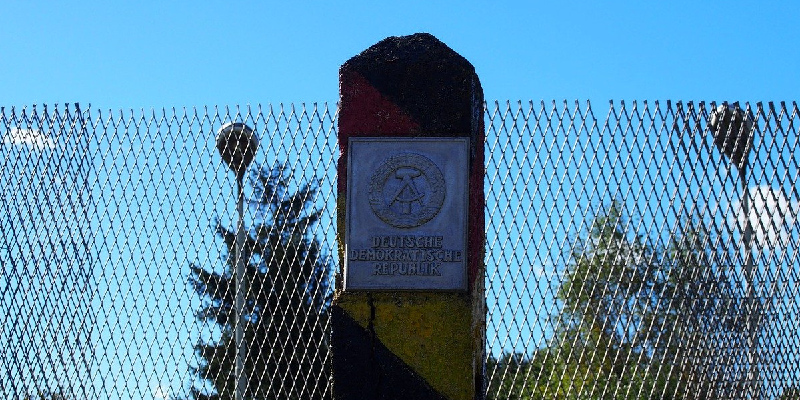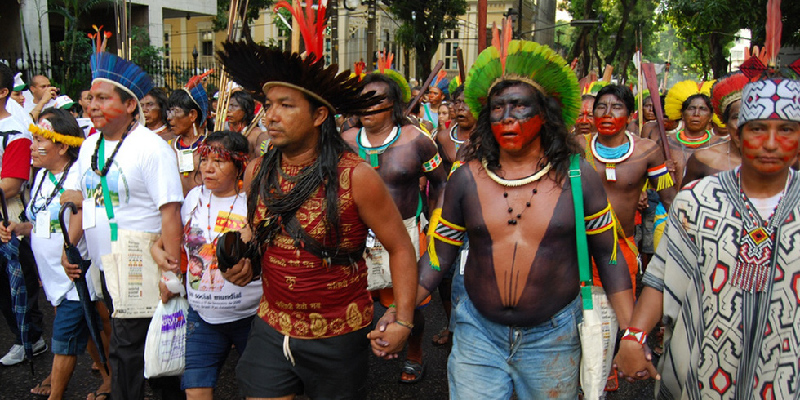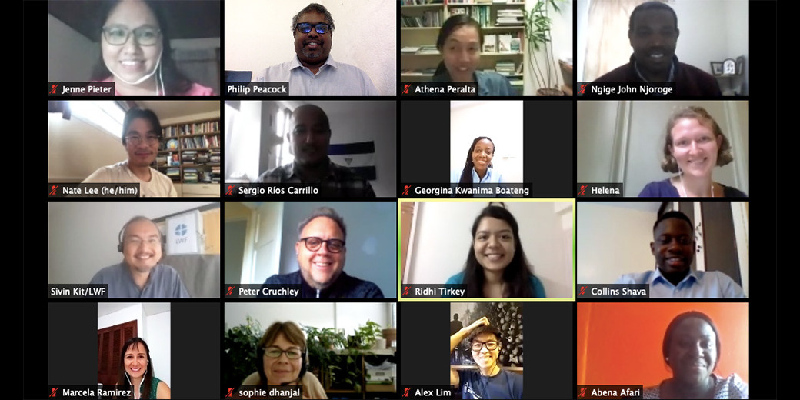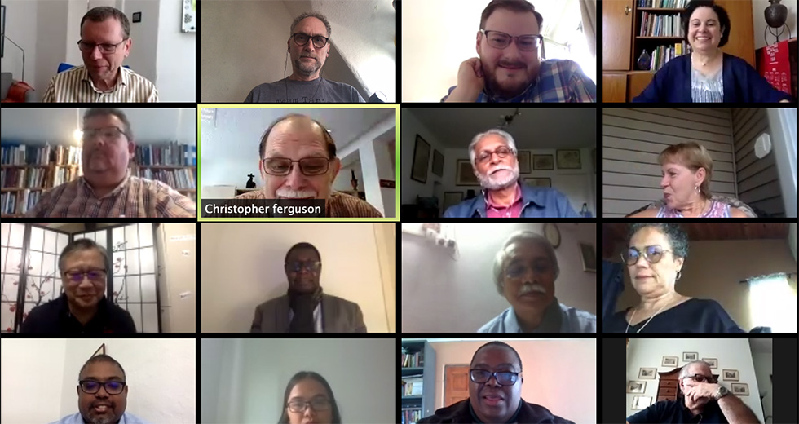Aktuelles
Aus den Landeskirchen >>>
Aus den Gemeinden >>>
Aus dem Reformierten Bund >>>
Kolumne >>>

from... - die reformierte App

Newsletter

Wir auf Facebook
Reformed church group and Mission Council seek closer ties
Covenanting towards an new ecumenical engagment Council for World Mission and World Communion of Reformed Churches
The full statement follows.
***
COVENANTING TOWARDS A NEW ECUMENICAL ENGAGEMENT
COUNCIL FOR WORLD MISSION AND WORLD COMMUNION OF REFORMED CHURCHES
A statement from a Strategic Partnership Consultation
Johannesburg, 21-23 February 2012
I have come that they might have life, and have it in all its fullness. John 10:10
Introduction
The Council for World Mission declares that its strategic purpose is “Fullness of life, through Christ, for all creation.” The World Communion of Reformed Churches states as its vision, “To live out the Communion of Reformed Churches, participating in God’s mission, that all may experience the fullness of life in Jesus Christ.” Clearly the same Spirit is guiding the two ecumenical organizations. They have a history of joint working in various mission enterprises both regionally and globally. Twenty seven of the 31 member bodies of CWM also belong to WCRC. We have gathered in Johannesburg as representatives of CWM and WCRC to discern what the Spirit is saying to us about the nature of our partnership at the present moment. This is what we have heard.
1. Towards a new ecumenical future
All around us we see ecumenical organizations on the brink of non-viability as traditional funding sources dry up and enthusiasm becomes more and more difficult to sustain. A multiplicity of ecumenical instruments competes for the loyalty, energy and money of our member churches. The concept of “partnership” is well-worn, with overtones of a previous age in which the global North and West dictated the terms on which relationships would function. However, we are hopeful because we sense the birth pangs of a new ecumenical age. God is calling for new models of ecumenical work and witness. Serious theological work will be needed to undergird the steps God is calling us to take. We particularly want to pledge ourselves anew to the serious reading of scripture together through a justice lens that will direct and energise our work in these challenging times. Together we affirm our understanding of the call to partnership in mission as a calling to communion (koinonia).
2. Our journey
We have remembered how the theological and spiritual contributions of the Reformed family have changed history in the past. In the 1940’s and 1950’s, Reformed thinking helped to shape the Universal Declaration of Human Rights and the United Nations. The World Alliance of Reformed Churches’ condemnation of apartheid was a catalyst which helped to bring that system to an end. Most recently, the Accra Confession “Covenanting for Justice in the Economy and the Earth” (2004) contributed to an analysis and a language that are now echoed around the world as people clamour for global economic justice and the safeguarding of creation. The Accra Confession served to challenge unjust structures. Its work of deconstruction (which we recognise to be ongoing) must be matched by new constructive work to offer the world an alternative international economic architecture. We believe that the world is hungry for the contribution that we can make.
CWM has a long history of engagement with local communities, having interpreted and proclaimed the gospel as God’s gracious act of hospitality and liberation. With its focus on assisting and accompanying its constituent bodies to live in solidarity with people struggling with life’s disparities and searching for meaning and significance, CWM has demonstrated that justice is the very heartbeat of missional engagement. Through its sharing of people, churches have welcomed the gift of a healthy partnership in mission, where the ethos of giving and receiving has enriched their prophetic witness. Programmes such as Training in Mission and Face to Face are means through which thousands of young people have been exposed to cross-cultural learning, empowered and encouraged to live their faith in the choices they make in respect of vocation, social engagement and interpersonal relationships.
WCRC and CWM have a history of working collaboratively, for example in the WARC Mission Project, Oikotree, and economic, climate and gender justice issues. We see the work on a New Financial Architecture, the International Immigration Forum, the Global Institute of Theology, and the Training in Mission programmes as new frontiers of working together.
3. Money
Both the WCRC and CWM are faced with the struggle and the contradiction of money in a world where money, and not relationships, defines power. The thought that these ecumenical bodies could be constrained by the challenges of money is a concern that we are committed to addressing together. We have agonised with the dysfunctional social landscape in which we operate, where money, as a social currency, is given greater premium than it ought to have. We have acknowledged that the power dynamics associated with it consume us and often prevent us from critiquing ourselves, and we agreed that there is an urgent need for us to engage ourselves in a diligent examination of the theology of money in this climate of economic and social injustice. Recognising that “the earth is the Lord’s and the fullness thereof”, we affirmed that our resources belong to God and that our stewardship of these resources falls short. However, our worship together, at the beginning of the season of Lent, helped us to see with fresh eyes our need for penitence and hope. Having been reminded, and having considered, that in classical Chinese writing the word “crisis” is represented by the two characters for “danger” and “opportunity”, we welcome this moment as an opportunity to confess our complicity, embrace the values of our faith and recommit ourselves to living in faithful obedience to the God of justice, whose gift of grace beckons us to act with grace.
4. Driven by a common purpose
We therefore commit ourselves to identifying an ecumenical future which has our strategic purposes as its starting point. The two organizations are in significant agreement in defining these purposes. WCRC names its key directions as Communion, Justice, Mission, Theology and Ecumenical Engagement. CWM’s four priorities are the development of missional congregations, the deepening of partnership, the exercise of solidarity and prophetic witness, and reflection and research. The parallels are immediately clear. These priorities call us not only into deeper relationship with one another but to a new openness to other partners who share our vision. We must enhance and strengthen our common global witness for justice. The commitment to communion (koinonia) between our churches is an integral aspect of this witness.
5. Location
Justice and communion are critical issues as we consider the matter of the location of offices, and location is an important element of the new collaboration between CWM and WCRC. CWM is on a journey and is in the process of relocating its office to Singapore. WCRC is now actively seeking to relocate its office due to spiralling costs in Geneva and a need to relate more adequately to the global reach of its churches. We note that we missed an opportunity for the two organizations to move together to a common venue so as to facilitate joint working. However, we believe that there is a variety of ways in which the two organizations can meet, and that there would be value in creating common meeting spaces. For example, we could hold meetings of our governing bodies in the same venue so as to create opportunities to meet together alongside the responsibilities of two separate agendas. Part of the paradigm shift in the global ecumenical movement is the significance of the global South and we hope that WCRC will take this seriously in its decision about relocation.
6. Taking things forward
Because we believe that collaboration in this mission will enable our resources to have their greatest impact, we have proposals to ensure the nurture of a new generation of ecumenical leaders, to enhance our work of justice together, to encourage our regions to work together and to ensure the financial viability of both organizations. These will be brought to the WCRC Executive Committee meeting in May and the CWM Trustee Body meeting in June.
WCRC, 23 February 2012
Zukunftsmusik
Kathrin Oxen
Der biblische Zöllner Zachäus - und Steuerpolitik heute
Quelle: WGRK
'Solidarität als Leitprinzip'
ime/ref-info
'Ein Mangel an Respekt vor dem Wald'
Quelle: WGRK/ÖRK
Die Pandemie als 'Tor zu mitfühlenderen, gerechteren und ökologisch gesünderen Wegen'
Quelle: WGRK
Solidarität in Corona-Zeiten
Quelle: WGRK
Die Weltgemeinschaft Reformierter Kirchen sucht ihren nächsten Generalsekretär
Quelle: WGRK
'Was wir nicht brauchen, ist eine Rückkehr zur Normalität'
Quelle: WGRK
'Wir sind entsetzt'
Quelle: WGRK
'COVID-19 ruft uns zu einer theologischen und ethischen Erneuerung auf'
Quelle: WGRK












